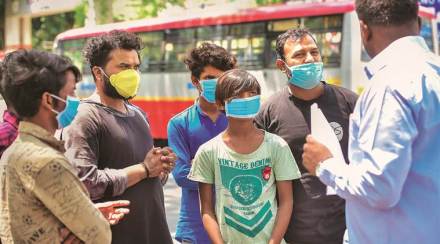What levels of poverty forced migrants, within days of the lockdown announcement, to flee cities they had come to for work? A survey by Karnataka Janashakti, a Karnataka-based civil society organisation, may have some pointers. The organisation surveyed 1,387 workers across sectors and members of certain marginalised groups in the state, and found that an overwhelming 82% didn’t have money to buy essentials and run their houses.
Almost three-quarters of the farmers among the respondents said they could not sell their produce, and among those that did manage to sell it off, nearly four-fifths incurred serious losses. More than half of the respondents stated that they were not able to access any government relief during the lockdown period.
The survey also covered those living at the fringes of society such as those in sex-work, transgenders and nomadic people, and found that nearly all such people received no relief from the government. And, just 5% were able to receive the medical attention required during the period. Such wide and deep distress is likely to exact immense health, economic and social costs from some of the most vulnerable sections of the population, especially if the barriers to accessing government relief remain.
The Karnataka story is likely to have played out across the country, and perhaps will manifest in a worse manner as rural areas in poor states see a surge of returning migrants—with Covid-19 cases rising, wages falling, and deprivation deepening.
While tackling rural distress will need an increase in the number of guaranteed days of work under MGNREGA, Karnataka Janashakti recommended an urban employment guarantee scheme. However, what is really needed is kickstarting industry, especially MSMEs, to ensure job creation picks up. Without that, the government may not even have the resources to continue a relief/employment guarantee programme.
